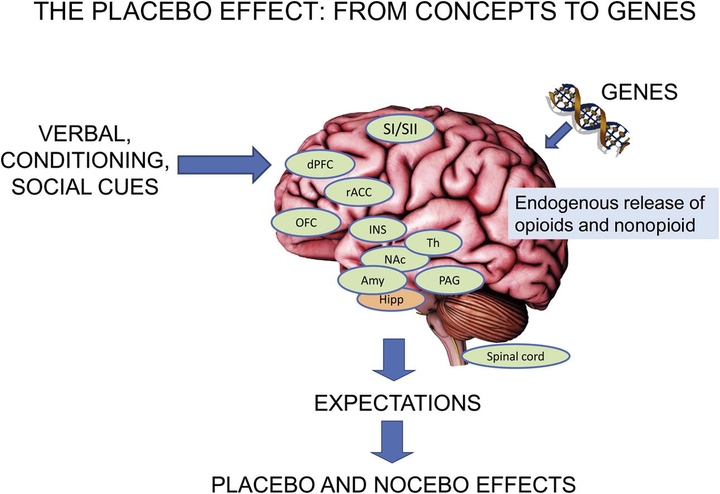
Abstract
Despite its initial treatment as a nuisance variable, the placebo effect is now recognized as a powerful determinant of health across many different diseases and encounters. This is in light of some remarkable findings ranging from demonstrations that the placebo effect significantly modulates the response to active treatments in conditions such as pain, anxiety, Parkinson’s disease, and some surgical procedures. Here, we review pioneering studies and recent advances in behavioral, neurobiological, and genetic influences on the placebo effect. Consistent with recent conceptualizations, the placebo effect is presented as the product of a general expectancy learning mechanism in which verbal, conditioned, and social cues are centrally integrated to change behaviors and outcomes. Examples of the integration of verbal and conditioned cues, such as instructed reversal of placebo effects are also incorporated into this model. We discuss neuroimaging studies that have identified key brain regions and modulatory mechanisms underlying placebo effects using well-established behavioral paradigms. Finally, we present a synthesis of recent genetics studies on the placebo effect, highlighting a promising link between genetic variants in the dopamine, opioid, serotonin, and endocannabinoid pathways and placebo responsiveness. Greater understanding of the behavioral, neurobiological, and genetic influences on the placebo effect is critical for evaluating medical interventions and may allow health professionals to tailor and personalize interventions in order to maximize treatment outcomes in clinical settings.